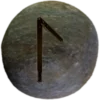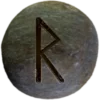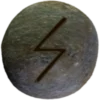Last Updated on February 19, 2025
Table of Contents


Jacksonville, Florida, with its modern skyline and rich history, hides an unexpected connection to Northern Europe and Asatru. In the late 1800s, immigrants from Scandinavia began settling in the area, drawn by its growing port and fertile land. These newcomers brought their traditions, culture, and beliefs, subtly shaping Jacksonville’s identity over time.
Among them were families who still held strong ties to their Norse heritage. They practiced ancient rituals in secret, honoring gods like Odin and Thor. These early settlers often gathered in small groups along the St. Johns River, mirroring the ancient blóts of their ancestors. As Jacksonville expanded, these gatherings continued, but quietly.
In the early 20th century, many of their descendants worked to preserve these traditions. A small Asatru community grew within Jacksonville, embracing old customs while adapting to the modern world. Some began organizing public ceremonies during significant Norse festivals, like Yule and Vetrnætr. These events attracted not only those with Northern European roots but also people curious about Asatru and Norse Paganism.
Jacksonville Florida and its connection to Northern Europe became even stronger with the influx of Scandinavian businesses and cultural exchanges. The city’s port facilitated trade between Florida and countries like Norway, Sweden, and Denmark. This connection kept the local Asatru community vibrant and evolving, as ideas and traditions flowed across the Atlantic.
Today, the Asatru community in Jacksonville Florida remains active. People gather regularly in kindreds, celebrating the changing seasons and honoring their ancestors. The city’s blend of old and new makes it a unique hub for modern Norse Paganism in the southeastern United States.
Though often overlooked, Jacksonville’s link to Northern Europe thrives through its people, history, and traditions. Asatru, once practiced in hushed tones, now shines openly in the city, continuing the spirit of those early settlers.
Runes Associated with Jacksonville Florida
Raido (ᚱ – “Rye-doh”) represents travel, movement, and journeys. Jacksonville thrives on transportation, with major highways, railroads, and one of Florida’s busiest ports. The St. Johns River serves as a natural highway, just as Raido symbolizes purposeful movement. Whether by car, ship, or foot, people in Jacksonville embrace the rune’s energy of forward momentum.
Laguz (ᛚ – “Lah-gooz”) connects to water, intuition, and flow. Jacksonville sits along the Atlantic Ocean and the St. Johns River, making water essential to life here. The city’s culture flows like the tides, blending diverse influences. Laguz also signifies adaptability, much like Jacksonville’s resilience through storms and economic shifts. Locals embrace water’s power, enjoying boating, fishing, and beach life. This Elder Futhark rune reflects the city’s deep connection to its waterways and ever-changing nature. ![]()
Its Importance to Asatru
Jacksonville provides a strong community for Asatruar (OW-sah-troo-ar) seeking connection, tradition, and nature. The city offers forests, rivers, and ocean access, creating spaces for outdoor blóts (BLOHTS) and sumbels (SOOM-bels). Many Asatruar gather in parks, beaches, and private land to honor the gods and wights.
The city’s diverse population includes many seeking ancestral wisdom and spiritual revival. Its location in the Southeast makes it a hub for regional gatherings and festivals. The city hosts kindreds (KIN-dreds) that welcome newcomers and experienced practitioners alike. Mead halls, Norse-themed shops, and Viking reenactment groups bring the past to life.
The St. Johns River serves as a natural focal point for ceremonies and meditations. Storms, waves, and changing tides reflect the ever-turning cycle of Wyrd (WEERD). In Jacksonville, Asatruar find fellowship, sacred spaces, and a deep connection to their beliefs.


